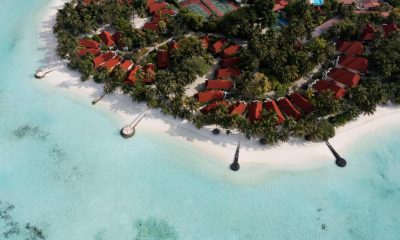Featured
Through transformation, Kurumba Maldives’ young Operations Manager Ali Farooq sets the bar high

Like many young Maldivians, Ali Farooq thought he would end up doing a desk job like an accountant after graduating from high school. But while studying for A-Levels in capital Male, he met a couple of friends working in resorts. What they told him completely changed his life!
Ali realised that he had been preparing himself for the wrong profession; that no other industry in the Maldives had a brighter future than hospitality. And so, after A-Levels, he pursued a course from Hotel School (now Faculty of Hospitality and Tourism Studies of The Maldives National University), and joined Kurumba Maldives in 2001 as a waiter under a six-month internship programme.
Since then, it has been one achievement after the other for this young man in his early 30s. Ali has climbed up the ranks to become the Operations Manager — the second-in-command — at Kurumba Maldives. He plays a key role in leading the constant evolution of the first resort to open in the island nation.
Maldives Insider speaks to Ali about his career, the transformation of Kurumba and the opportunities for locals in the Maldives tourism industry.

Aerial view of Kurumba Maldives. PHOTO/ KURUMBA
Maldives Insider: How would you describe your first few years in the industry?
Ali Farooq: When I joined Kurumba as a full-time waiter after my six-month internship, it was gearing up for a complete reconstruction. Employees were given two options; to stay and help with the project or leave and come back after the relaunch. Those of us who stayed were tasked with support services such as managing the inventory. I was 18 years at the time and in the mood to enjoy life. With no guests in the island, it was more of a picnic than a job. We had so much of a good time that sometimes I wished the project had gone on a little longer.
Kurumba transformed from Kurumba Village to Kurumba Maldives, targeting the high-end clientele. The resort offered the best accommodation options available in the Maldives at the time and introduced butler service in all premium rooms. I was amongst the first four butlers trained by a German expert. It was very complex, but I learned a lot from it. It opened my eyes to the service industry. After the training, I became the first butler in the Universal Group.

The Vihamanaa international buffet restaurant at Kurumba Maldives. PHOTO/ KURUMBA
MI: What were your experiences as a butler?
AF: From 2004 to 2006 were the golden years of Kurumba, as competition was basically non-existent. It allowed us to charge premium rates and butler service was a major component of it.
I had the chance to serve several high-profile personalities such as US presidents George Bush and Bill Clinton, then UN Secretary General Kofi Annan, then Emir of Qatar Sheikh Hamad bin Khalifa Al Thani, and many others. You don’t even believe it yourself when it happens; a nobody from a small country in the Indian Ocean gets the chance to meet and interact with the most powerful people in the world!
I was earning so much as well — sometimes more than even the General Manager — that I thought I’d never take up another job.
MI: How did your career take a turn towards food and beverage?
AF: After 2005, a lot of new resorts opened up across the Maldives, including private islands in some remote locations. Demand for premium rooms in Kurumba started dropping, and butlers were sometimes left with no work. I realised that it was time for me to move on.
At the time, Kurumba offered me the chance to enter into restaurant operations. I took up the task, and within six months I was promoted to the post of Assistant Restaurant Manager. From there, I went onto become Bar and Restaurant Manager. I was in restaurant operations until I was promoted to the post of Assistant Food and Beverage Manager in 2014. After two years in that position, I was appointed to the post of Food and Beverage Manager.
Now, after being promoted to the post of Operations Manager from the Food and Beverage Manager position, I have an added responsibility to look after the overall operations of the resort. I serve in a supportive role to the General Manager.

The Thila contemporary restaurant and grill at Kurumba Maldives. PHOTO/ KURUMBA
MI: How has Kurumba transformed over the past 40 years, especially during your career?
AF: When I first joined, it was very basic. After the relaunch in 2004, it became a completely new product. In 2014, we carried out a major project to establish our signature Thila restaurant and to revamp our main restaurant. We’ve also established a new Japanese restaurant and reviewed the concept of all of our speciality restaurants.
I think Kurumba does maintenance and upgrading better than any other property in the Maldives. Every year, something new comes up, be it a new villa category or a new restaurant. We do it because we understand the importance of implementing new and creative ideas, especially in a competitive market such as ours. This constant evolution has become one of our strengths.
We keep a close eye on the latest happenings and trends in the industry. Based on our findings, we keep on changing the interior of our rooms, and keep our food and beverage options up-to-date. But as the first resort in the Maldives, we’ve several traditional service cultures that we follow. So, whatever change we bring about, we make sure that Kurumba’s uniqueness and its traditional values are kept intact.
MI: With the rapid expansion of the tourism industry, how has Kurumba maintained its position as a leading resort in the Maldives?
AF: I think we’re doing very well. Over the past 40 plus years, we’ve established service standards that are on par or sometimes even exceed those of reputed international hotel chains. Whoever comes in to head the resort has a responsibility to maintain those high standards. We’ve been very fortunate to have that kind of leaders with us.
Our achievements can be seen in the number of awards we’ve won, including several prestigious titles at the World Travel Awards, World Luxury Hotel Awards, World Luxury Restaurant Awards and Maldives Travel Awards. Our reputation on online travel websites such as TripAdvisor are excellent.

The Hamakaze teppanyaki restaurant at Kurumba Maldives. PHOTO/ KURUMBA
MI: There are concerns that the industry does not provide enough opportunities for locals to reach key positions. What do you think?
AF: I’m totally against that claim. There are many opportunities, but we’ve a hard time finding competent locals to fill up those positions. We get 50-100 applications for every job posting, but only a few them come with even the basic mindset necessary for a career in hospitality. Even those that do travel and tourism as a subject for O-Levels and A-Levels want to work only in managerial positions. But this is an altogether different industry. Say for example, a doctor has to start from the bottom before specialising in the field they’re interested in. Likewise, hospitality professionals can only start at the bottom and climb up the ladder. It’s a journey, which will surely pay off.
We try to develop young talent, but high school graduates aren’t ready to work in this industry. Starting from primary school years, students should be given career guidance. What happens now is that students who finish O-Levels and A-Levels aren’t sure which career path they want to follow. This poses several challenges because attitude is key in hospitality. Anyone who has the right attitude can be groomed for whatever job in this industry.
There’s also a problem with the general attitude and lifestyle of our youth. Most of them want to be funky; have long hair, untrimmed beard and unclipped nails. They want to go to Male every night after work, sleep in during the weekend and so on. But like every other service industry, hospitality too has certain minimum standards that can’t be compromised.
MI: What should be done to encourage more and more young people to join the hospitality industry?
AF: A great deal of it involves creating public awareness and changing the mindset of the public in general. You might have to be away from your family for a little while, but you save up 100 percent of your salary and allowances for your family. The resort looks after your accommodation, food and everything. But some of our young people prefer to take a job in Male that pays just MVR3,000-4,000 than going to a resort for a job that pays over MVR10,000 as basic salary.
On the other hand, we’re also seeing some positive changes as well. More and more young people understand the importance of tourism for the Maldives, and are keen to explore a career in hospitality. If the right push can be applied through our education system, we will have a much brighter future where the industry will be dominated by locals.

The recently opened King Thai restaurant at Kurumba Maldives. PHOTO/ KURUMBA
MI: What are your biggest achievements?
AF: I’m still in my early 30s, and look where I’m today! In the past 15-16 years, I believe I’ve been able to climb a bit higher than I should in my professional career. I’ve achieved every single goal that I set my eyes on.
My involvement in the transformation of Kurumba is also a personal achievement to me. I started my career here. I also started my life here; I met my life partner here and we stayed here for almost two years until she got pregnant and moved to Male. So, it’s special for me in more than one way.
MI: What is the next step in your career?
AF: I’ve always dreamed of becoming a general manager one day. I think I can reach that level, and I’m surely working towards that goal.
Featured
Ancient banyan tree anchors spiritual experiences at Machchafushi Island Resort
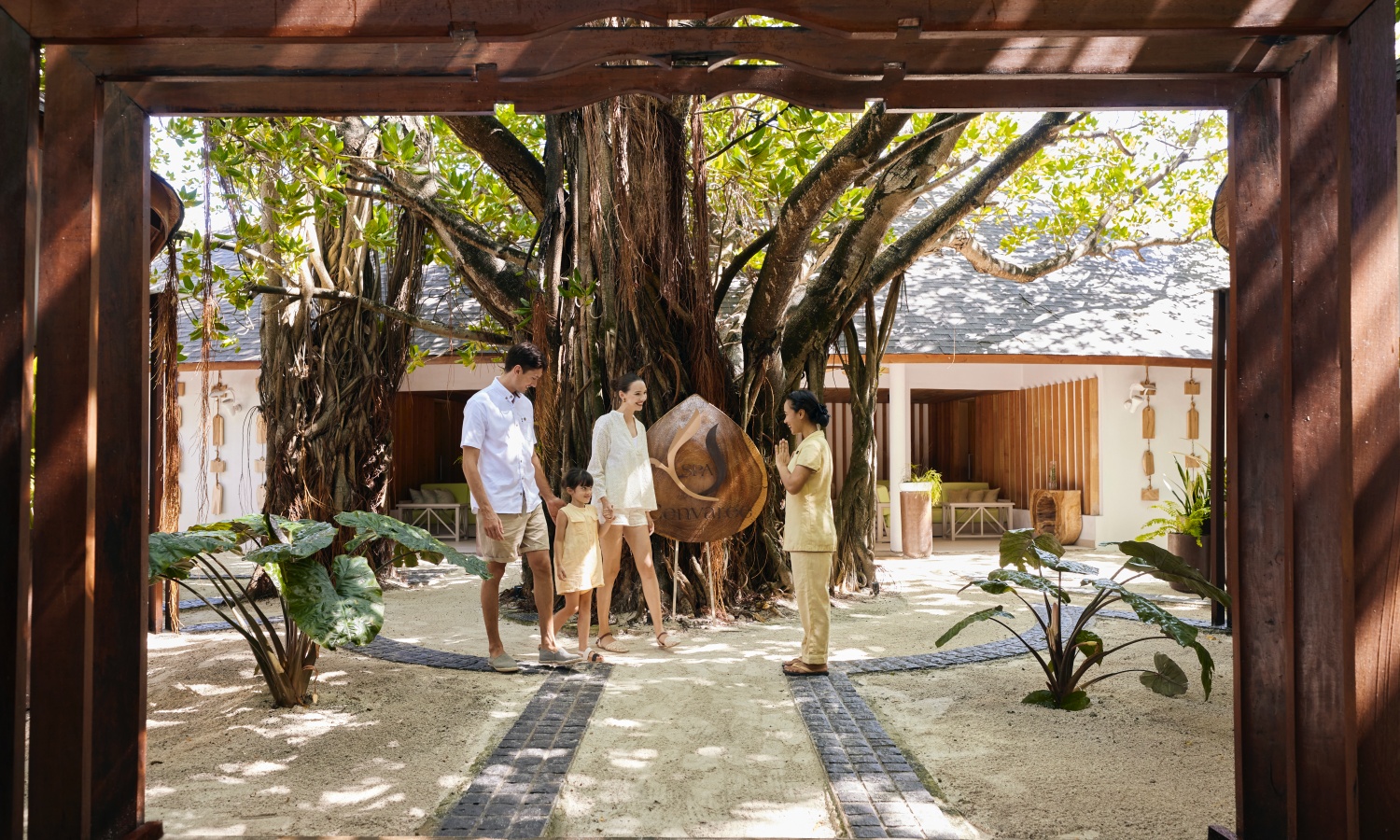
Machchafushi Island Resort & Spa, part of The Centara Collection, offers an island experience shaped by the rhythm of the ocean in the heart of South Ari Atoll. While the resort is widely recognised for its celebrated dive sites, award-winning house reef and rich marine life, another presence quietly anchors the spirit of the island.
Within the peaceful grounds of SPA Cenvaree stands a centuries-old banyan tree known locally as the Ummeedhu Tree, meaning Wish Fulfilment. With its expansive canopy and cascading aerial roots, the tree is regarded as more than a natural landmark. It is a symbol of continuity and reflection, standing as a silent witness to the island’s past and present.
Long before the island became a resort destination, the banyan tree stood rooted in the sands of Machchafushi. Today, the resort honours it as the spiritual heart of the island, inviting guests to pause beneath its branches and engage in moments of reflection and reconnection.
This connection is expressed through the Sacred Thread Ceremony, a contemplative ritual designed to offer guests a personal and meaningful experience. The ceremony begins with a quiet walk through the spa gardens, encouraging stillness and intention. Guests select a delicate golden leaf to represent a personal wish—whether for love, wellbeing, success, abundance or inner peace—and hold it alongside a wish card while visualising that intention fulfilled. The golden leaf is then tied to the banyan’s ancient branches, symbolising the offering of the wish to the tree’s enduring presence. The leaf remains there, carrying the quiet energy of the intention until the guest’s return.
Beyond the banyan, the island continues its natural rhythm. The surrounding waters form part of one of the Maldives’ most significant marine environments, known for year-round whale shark encounters and an extensive house reef that stretches beyond the shoreline. Yet amid the movement of the sea and the vibrancy of coral life, it is often the stillness beneath the banyan tree that leaves the most lasting impression.
Sustainability and heritage are integral to life on Machchafushi Island. Located within the South Ari Marine Protected Area, the island is committed to safeguarding both its marine ecosystems and its cultural identity. The banyan tree stands as a reminder that preservation extends beyond the natural environment to include traditions, stories and the deeper connections between people and place.
At Machchafushi Island Resort & Spa, each day unfolds with moments shaped by nature and intention. From golden sunrises over the lagoon to wishes entrusted to ancient branches, experiences on the island are designed not only to be remembered, but to take root.
Featured
City Iftar experience curated at JEN Maldives by Shangri-La

JEN Maldives by Shangri-La is welcoming the holy month of Ramadan with a series of Iftar evenings at Lime Restaurant, inviting guests to gather in the spirit of reflection, gratitude and togetherness.
Recognising Ramadan as a time that brings families, friends and communities closer, the hotel has curated an Iftar experience designed to go beyond dining. The focus is on creating a welcoming environment where traditions are observed, conversations unfold naturally and shared moments are celebrated around the table.
Located in the heart of Malé, Lime Restaurant provides a warm and contemporary setting suited to a range of gatherings, from colleagues reconnecting after work to families and friends breaking fast together. Each evening reflects the generosity associated with Ramadan, featuring carefully prepared dishes, live cooking stations and a selection of sweet treats that balance traditional flavours with creative touches.
Iftar at JEN Maldives by Shangri-La is shaped by attentive service and thoughtful hospitality. Guests are welcomed into an atmosphere that blends comfort with understated elegance, allowing space for reflection while enjoying a relaxed dining experience. The hotel’s culinary and service teams work closely to ensure consistency, quality and authenticity throughout the season.
Whether for intimate gatherings or larger group celebrations, the venue offers flexibility supported by a culinary programme rooted in care and attention to detail. The Ramadan offering is designed to ensure guests feel at ease while enjoying a distinctive Iftar experience in the capital.
Throughout the holy month, JEN Maldives by Shangri-La invites guests to come together at Lime Restaurant to experience evenings defined by flavour, generosity and meaningful connection, in keeping with the true spirit of Ramadan.
Drink
Provence comes to Maldives with Château Minuty dinner at Milaidhoo Maldives
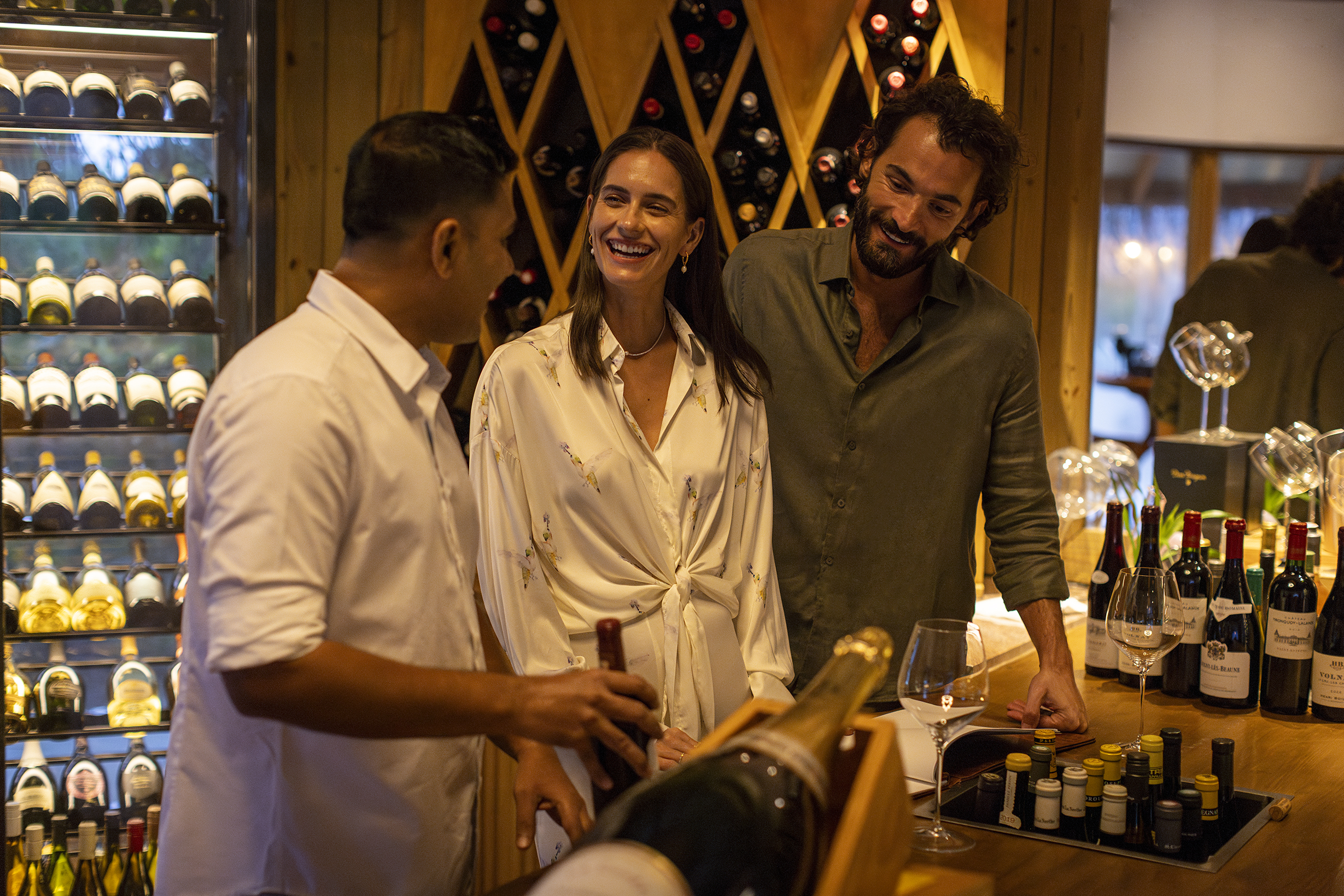
Milaidhoo Maldives is hosting a wine pairing dinner celebrating Provençal elegance and gastronomy on 4 March 2026 at the resort’s Shoreline Grill. The evening will feature wines from Château Minuty and will be hosted by Sébastien Nore, Global Strategy and Export Director of Château Minuty, offering guests insight into the winery’s heritage and approach to fine winemaking.
Originally from Limousin, France, Nore brings extensive experience in the international beverage industry. His career includes roles with Kronenbourg Wineries and PepsiCo France, followed by senior leadership positions at Diageo and Baron Philippe de Rothschild. He has played a key role in expanding Château Minuty’s global presence and currently oversees the winery’s strategy, sales, communication and marketing, with a focus on innovation and the refined character of Provençal rosé.
During the dinner, guests will enjoy a curated selection of Château Minuty wines, paired with a bespoke menu created by the Shoreline Grill culinary team. The featured wines include:
- Château Minuty M de Minuty Rosé Magnum 1.5L – Artist Edition 2024
- Château Minuty Prestige Rosé 2024
- Château Minuty Rosé et Or 2024
- Château Minuty 281 2024
Beyond this event, the dinner reflects Milaidhoo Maldives’ wider commitment to gastronomy. The resort’s Gourmet Plan is designed for guests with a strong interest in food and wine, offering personalised, multi-course dining experiences throughout their stay. Each menu is crafted to highlight the relationship between carefully selected ingredients and complementary wines, with an emphasis on authenticity and balance.
The Château Minuty dinner marks the fourth wine-focused event hosted by Milaidhoo Maldives this year, underscoring the resort’s ongoing focus on curated culinary experiences. The evening is positioned as a sensory journey, combining refined flavours, thoughtful pairings and a convivial island setting.
-
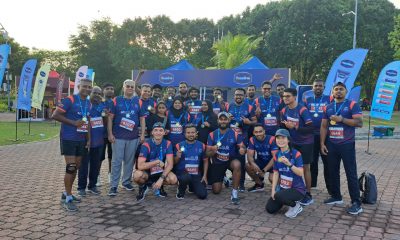
 Action1 week ago
Action1 week agoBestbuy Maldives supports health, wellness as Main Sponsor of MNU Marathon 2026
-

 Cooking1 week ago
Cooking1 week agoMaagiri Hotel invites guests to celebrate Ramadan with daily Iftar
-

 Awards1 week ago
Awards1 week agoEllaidhoo Maldives secures HolidayCheck Gold Award for second consecutive year
-
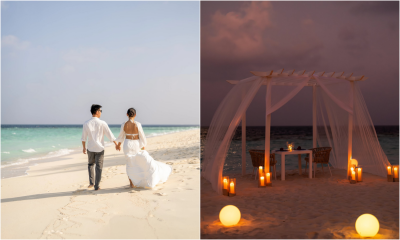
 Love1 week ago
Love1 week agoRomance in nature: Valentine’s week at Eri Maldives
-
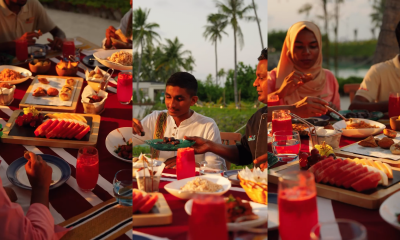
 Food1 week ago
Food1 week agoOBLU XPERIENCE Ailafushi invites guests to break fast island-style this Ramadan
-
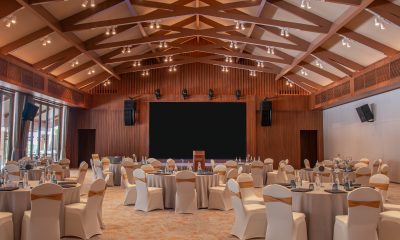
 Business5 days ago
Business5 days agoFeydhoo Hall opens at dusitD2 Feydhoo Maldives as new event space
-
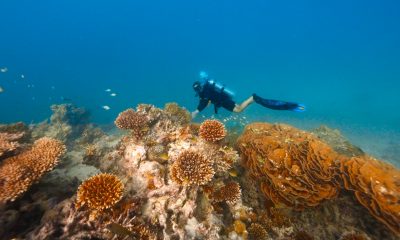
 News5 days ago
News5 days agoVentive Hospitality aligns Maldives portfolio with Green Fins marine sustainability platform
-
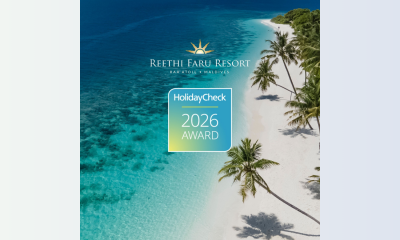
 Awards1 week ago
Awards1 week agoReethi Faru Resort recognised with HolidayCheck Award 2026





